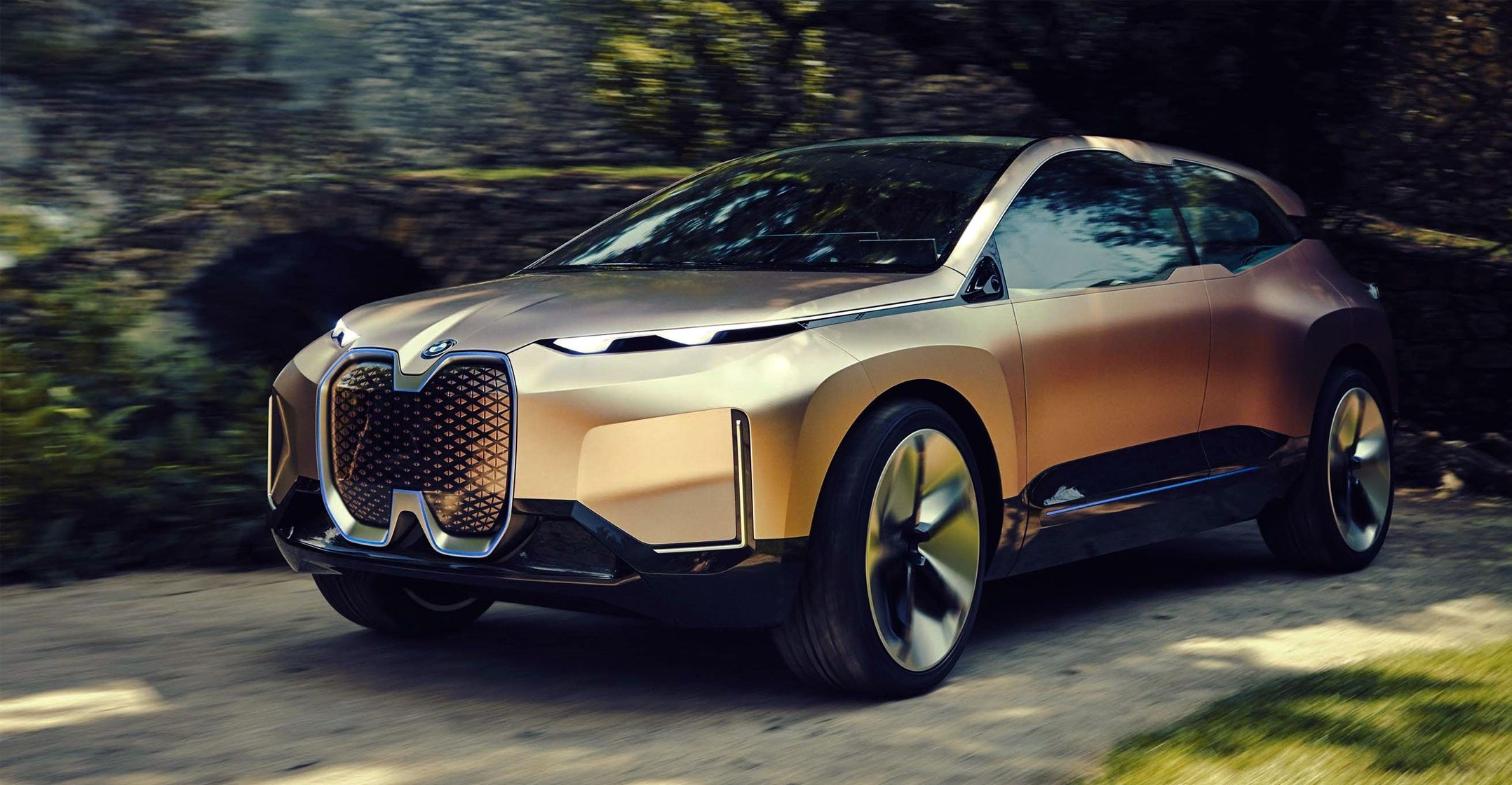 BMW has unveiled the latest iteration of its planned electric-car flagship, morphing what started out as low-slung cruiser into a sporty SUV, as the German luxury car maker scrambles to keep pace with rivals.
BMW has unveiled the latest iteration of its planned electric-car flagship, morphing what started out as low-slung cruiser into a sporty SUV, as the German luxury car maker scrambles to keep pace with rivals.
The iNext concept — revealed inside a cargo plane — is close to the production version, which is set to be released in 2021, according to development chief Klaus Froehlich. Design touches include a diamond-patterned front, replacing the iconic BMW grille.
The stark changes from the original 2016 prototype, known as Vision Next 100, reflect the difficulties developing a model intended as a standard bearer for future design and technology. It also suggests BMW misread the market as rivals already roll out electric SUVs. Mercedes Benz will start production of the EQC crossover in the first half of next year, Audi is showing its e-tron crossover in San Francisco next week, and Jaguar’s battery-powered I-Pace is already hitting the streets.
BMW counters that it beat peers with the battery-powered i3 in 2013, while the iNext will go beyond what competitors are offering with advanced self-driving capabilities and a driving range of about 600km.
“It’s very important that this car adds something, but it doesn’t take away anything of the typical BMW,” Froehlich said.
The iNext is a critical part of BMW’s efforts to regain the lead in global luxury-car sales from Mercedes and also fend off the likes of Tesla. The company is banking on the vehicle to rekindle excitement for a broader roll-out of new models on the coattails of the 2021 launch.
In the meantime, BMW is taking a conservative approach to electric vehicles. It’s planning to sell an electric-powered Mini in 2019, followed by a battery-powered variant of the X3 SUV.
The iNext’s focus will mainly be on self-driving. The car will be able to steer, brake and accelerate on its own but a driver needs to be prepared to grab the wheel — what’s known as conditional automation, or Level 3 technology. While the car could do more, unlocking those capabilities will depend on new rules being passed.
“The regulators in the world work at different speed,” Froehlich said. “I am quite concerned Europe won’t be fast enough.” — Reported by Oliver Sachgau and Gabrielle Coppola, (c) 2018 Bloomberg LP




